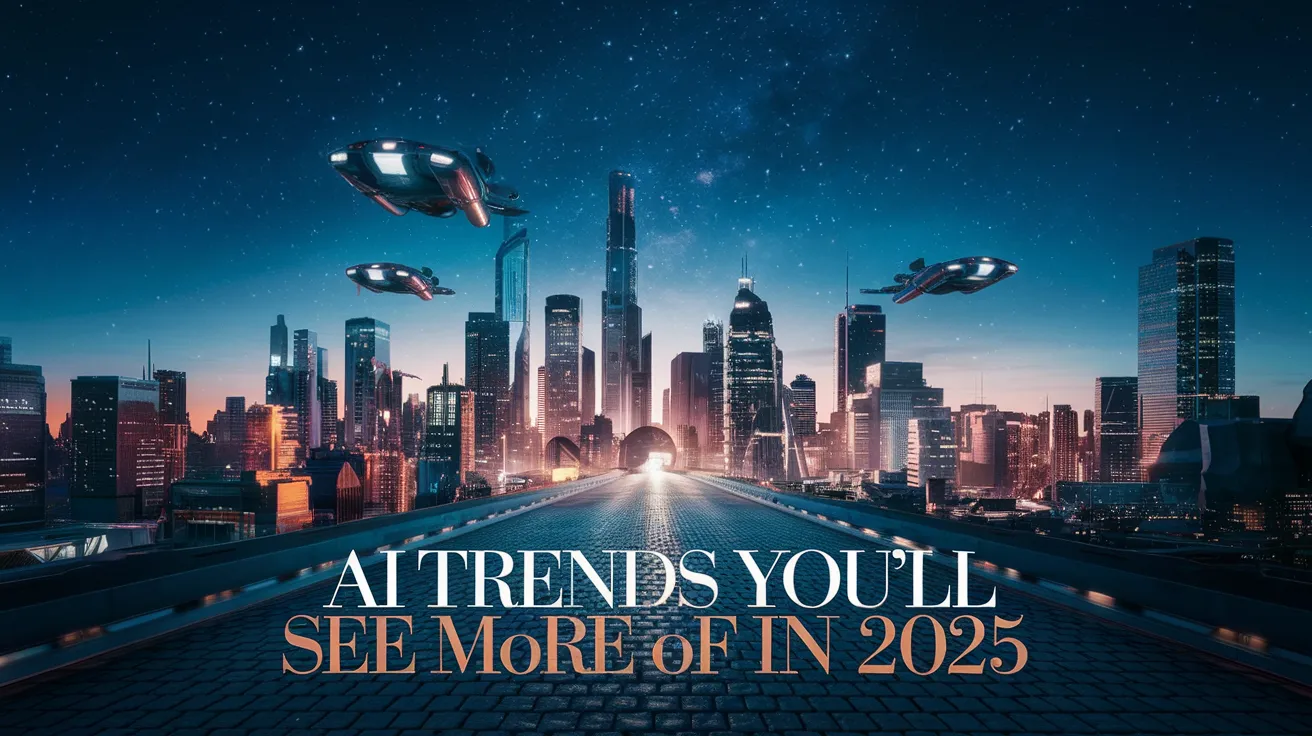AI Trends You’ll See More of in 2025

AI’s Evolution in 2025
As we look forward to 2025, AI is poised to transform from a mere tool for work and home into a core component of both spheres. According to Chris Young, executive vice president at Microsoft, AI’s potential is shifting dramatically as we transition from experimentation to widespread adoption. With generative AI usage skyrocketing from 55% to 75% among business leaders in the past year, its evolution signifies a starting point for profound technological integration into our lives.
Advancements in AI Capabilities
AI models are expected to become even faster and more efficient by 2025. The growth of frontier models that manage a broader range of tasks will allow for more specialized applications tailored to various industries. For instance, OpenAI’s models, showcasing advanced reasoning capabilities, can tackle complex problems in areas like science and healthcare, processing contracts, generating code, and executing detailed workflows. Microsoft’s focus on data curation and the use of synthetic data is driving this evolution, enhancing model performance significantly.
AI-Powered Agents in Business
Organizations are already leveraging Microsoft 365 Copilot to alleviate mundane tasks, but by 2025, AI agents are set to expand these capabilities substantially. These agents will not only automate repetitive tasks but will also handle complex assignments and provide transformative support across business processes. The ability for users to build agents without coding skills democratizes AI development, allowing for tailored solutions in organizations.
Human Oversight and Ethical Boundaries
Despite increasing automation, human oversight will remain crucial. As Ece Kamar from Microsoft’s AI Frontiers Lab emphasizes, guiding the boundaries of AI capabilities will be increasingly relevant in discussions about ethical AI deployment. The importance of maintaining human roles in the evolving landscape of AI is indispensable, addressing the need for checks and balances.
AI in Daily Life
On the home front, Copilot is anticipated to deliver streamlined daily assistance. By learning your preferences, it will help manage your information overload, keep track of tasks, and provide timely updates on relevant news. Additionally, Copilot Vision is set to enhance interactions, transforming how you interact with the web.
Sustainable AI Infrastructure
Microsoft’s commitment to building a sustainable AI infrastructure includes transitioning to energy-efficient data centers and utilizing renewable energy sources. With plans to become a carbon-negative company by 2030, the company is looking towards innovations that reduce the environmental impact of AI operations.
Customizing AI Applications
Individuals and organizations will gain increased control over AI applications in 2025. Customization features will allow businesses to tailor their AI tools to fit specific needs, enhancing both security and productivity. This reflects a shift towards user-centric AI application management, preparing for a future where organizations can dictate the parameters of their AI engagements.
AI’s Expanding Role in Scientific Research
AI’s influence is extending into scientific discovery, with breakthroughs that streamline research processes in fields such as drug development and sustainable materials. As Ashley Llorens from Microsoft Research notes, AI tools will enhance throughput and effectiveness in tackling major global challenges.
The Future of AI Innovation
The momentum driving AI advancements in 2025 is undeniable. From practical workplace applications to groundbreaking research implications, AI is set to unlock new potentials across various sectors, creating significant opportunities for individuals and organizations worldwide.